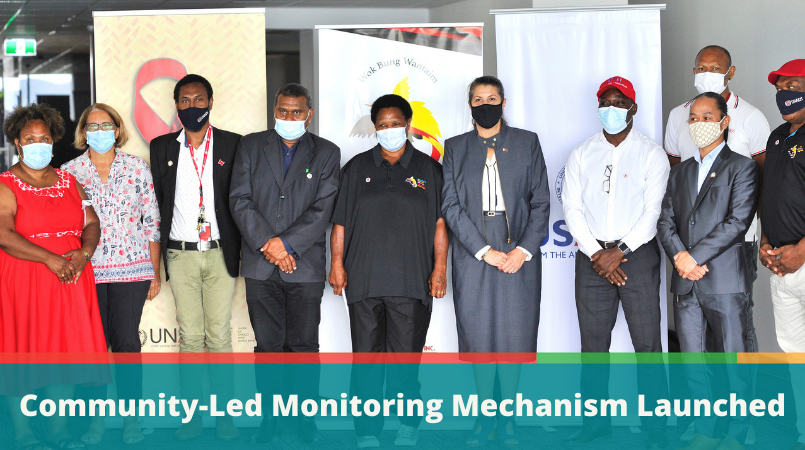
A Community-Led Monitoring mechanism designed to increase the quality of services for people living with HIV in the National Capital District (NCD), has been launched, to mark World AIDS Day.
This monitoring device was launched by Key Population Advocacy Consortium (KP Consortium), the United States Agency for International Development (USAID), and the Joint United Nations Programme on HIV/AIDS (UNAIDS), in close collaboration with the Government of Papua New Guinea.
“PNG has made and continues to make great strides to address HIV/AIDS, and the U.S. government will continue to stand with the government and people of PNG,” said U.S. Ambassador to Papua New Guinea, Solomon Islands, and Vanuatu Erin E. McKee.
“This model of community-led design and implementation is at the very heart of the United States’ mission here in Papua New Guinea. Our goal -- not only in HIV/AIDS or health support, but in everything that we do -- is to empower communities to be the drivers of their own development,” said Ambassador McKee.
“Community Led monitoring is an important piece of the national HIV response by making sure community voices are heard. This brings together government and community initiatives to build a stronger system for health to ensure that nobody is left behind,” said Dr Peniel Boas, Program Manager of the PNG National Department of Health. Dr Boas added, “The support from the U.S. Government and UNAIDS is catalytic to achieving this.”
Community-led monitoring (CLM) is part of the U.S. President’s Emergency Plan for AIDS Relief (PEPFAR) and global strategies to improve the quality of care for people living with HIV. With the support of USAID and UNAIDS, the activity is designed, led, and implemented by local community-based organizations, networks of key populations, people living with HIV, and other affected groups. The CLM mechanism develops a pathway for communities to collect and analyze data, provide recommendations, and ensure improvements in HIV services -- translating into action and change -- while also focusing on strengthening local institutions.
In 2022, USAID will provide over $3.8 million to support HIV/AIDS programming in PNG, including CLM activities. UNAIDS and the KP Consortium will work together to design, implement, and run the CLM system. The mechanism will initially focus on eleven USAID-supported HIV sites in the NCD and will collaborate with partners to expand its reach and impact.
Papua New Guinea has the highest HIV incidence and prevalence in the Pacific region. The country represents 95% of the reported HIV cases in the region and approximately 55,000 people in PNG are living with HIV.
The U.S. Government aims to achieve inclusive, resilient and sustainable control of the HIV/AIDS epidemic in PNG in collaboration with partners like the National Department of Health and UNAIDS, and through the leadership of the affected community represented by KP Consortium.
